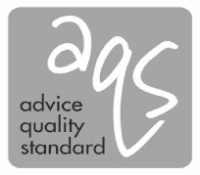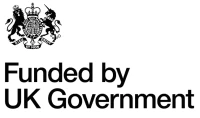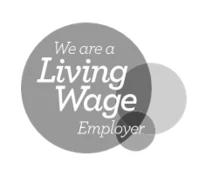History of the Citizens Advice Service
HELPING TO SOLVE PROBLEMS SINCE 1939Citizens Advice Portsmouth started operation on 4th September 1939 and was one of the initial 20 Local Citizens Advice, set up to give an emergency service at the beginning of the Second World War. By 1942 there were over 1000 Local Citizens Advice staffed entirely by volunteers and supported by local councils. A government grant was made to individual Local Citizens Advice via the Ministry of Health which also funded travelling officers who worked from the
national council of social service and a central office.
After the end of the War national funding for Local Citizens Advice was cut and in 1950 all central government help was stopped, three years later the number of Local Citizens Advice had fallen to a half of the 1948 figure. A central support service was able to continue with grants from charitable trusts, such as the Joseph Rowntree foundation.
In 1957 the Rent Act greatly increased the number of enquiries at and in 1960 government funding was re-introduced.
In 1973 the government gave a grant to help with the increasing number of consumer enquiries, as a result more local Citizens Advice were opened and the DTI funded the National Association of Citizens Advice Bureaux which later became simply Citizens Advice.
Citizens Advice Cosham opened its doors in 1963 and operated separately from the Portsmouth branch until the district was formed in the nineties.
Each Citizens Advice is an autonomous independent Charity, but we are a member of the association, subscribing to the National Policies and Principles. Citizens Advice Portsmouth became a Company Limited by Guarantee in 1994.
Timeline:
- 1935: The government is considering the need for an information service linked to the fledging social welfare service.
- 1938:The prospect of a world war looms so the National Council of Social Services (the forerunner of today's National Council of Voluntary Organisations) establishes a group to look at how to meet the needs of the civilian population in war time. "Citizens Advice Bureaux should be established throughout the country, particularly in the large cities and industrial areas where social disorganisation may be acute."
- 3 September 1939: War is declared.
- 4 September 1939: The first 200 bureaux open.
- From the start, volunteers run the service working from public buildings and private houses. Advisers deal with problems relating to the loss of ration books, homelessness and evacuation. They also help locate missing relatives and prisoners of war. Debt quickly becomes a key issue as income reduces due to call-ups.
- 1950s: Despite the success of Citizens Advice Bureaux, funding from the Ministry of Health is cut after the war, and by 1953 the number of bureaux has halved. The service continues thanks to the support of charitable trusts such as the Nuffield Foundation, Carnegie Trust and the Joseph Rowntree Foundation.
- 1957: The Rent Act results in a big increase in enquiries
- 1960: Funding from the Government for the national body is restored.
- 1960s: A quarter of enquiries relate to housing and the number of bureaux has reduced from 1,074 to 416.
- 1965: The national total for enquiries reaches 1.25 million.
- 1970s: Consumer protection becomes a priority.
- 1973: A development grant from the Government is given to the national charity, the National Association of Citizens Advice Bureaux (NACAB), to extend the network.
- 1980s: Two recessions mean a growth in poverty and enquiries rise in line with this.
- 1990s: Changes to the benefit system and work practices generate a large proportion of the enquiries bureaux receive.
- 1999: www.adviceguide.org.uk is launched, allowing people to access advice online 24 hours a day. The service celebrates its Diamond Jubilee and launches Advice Week.
- 2000s: Debt, housing and employment continue to be key problems that Citizens Advice Bureaux deal with, particularly in relation to asylum issues.
- 2002: The service receives a £20 million grant from the Government's Capital Modernisation Fund to provide IT infrastructure to roll out e-government services to Citizens Advice service clients.
- 2003: Our Adviceguide self-help content is made available in Welsh, Bengali, Chinese, Gujarati, Punjabi and Urdu and visits continue to increase, extending access to our advice to those who cannot use our local service.
- 2003: The National Association of Citizens Advice Bureaux changes its name to Citizens Advice and, in Wales, to Citizens Advice Cymru (Cyngor ar Bopeth Cymru).
- 2003: Citizens Advice Bureaux become the first in the advice sector to audit the quality of their advice.
- 2003: An independently commissioned review of the service by the Office for Public Management concludes that "the Citizens Advice service provides excellent value in return for the public funding it receives. It makes a significant contribution to individuals and communities, as well as to the process of policy-making and service delivery. Its holistic approach, national coverage and independence are to be cherished.”
- 2004: After a ten year campaign using evidence from Citizens Advice service clients, the Government added an amendment to the Housing Bill to include a tenancy deposit protection scheme.
- 4 September 2009: Citizens Advice service celebrates its 70th birthday.
- 2011/12: Citizens Advice Bureaux deliver advice services from over 3,400 community locations in England and Wales, run by 360 registered charities, helping people to resolve their legal, money and other problems by providing free advice and information, and by influencing policymakers. The network relies on 22,200 trained volunteers to keep the service running, and provides advice from in person in bureaux as well as by phone, in people's homes and via the internet. Visits to our Adviceguide self-help website, have risen to over 11 million.
- 2012/13: More than two million people came to our service for face-to-face or phone advice. More than 12 million people used our digital services. We launched our first equality strategy – Stand up for equality that will ensure we place equality at the centre of everything we do.
- April 2014: Consumer Futures (formerly Consumer Focus), which is responsible for representing consumers of regulated industries (energy and post), transferred to Citizens Advice.
- 4 September 2014: Citizens Advice service celebrates its 75th birthday.
- April 2015: Citizens Advice took on 2 new services. The Citizens Advice network provides the face-to-face service for Pension Wise. The Citizens Advice Witness Service provides free, independent support for witnesses in criminal courts in England and Wales.
- 2019 Citizens Advice turns 80 and we’d like your help to show the difference those years of advice have made.







